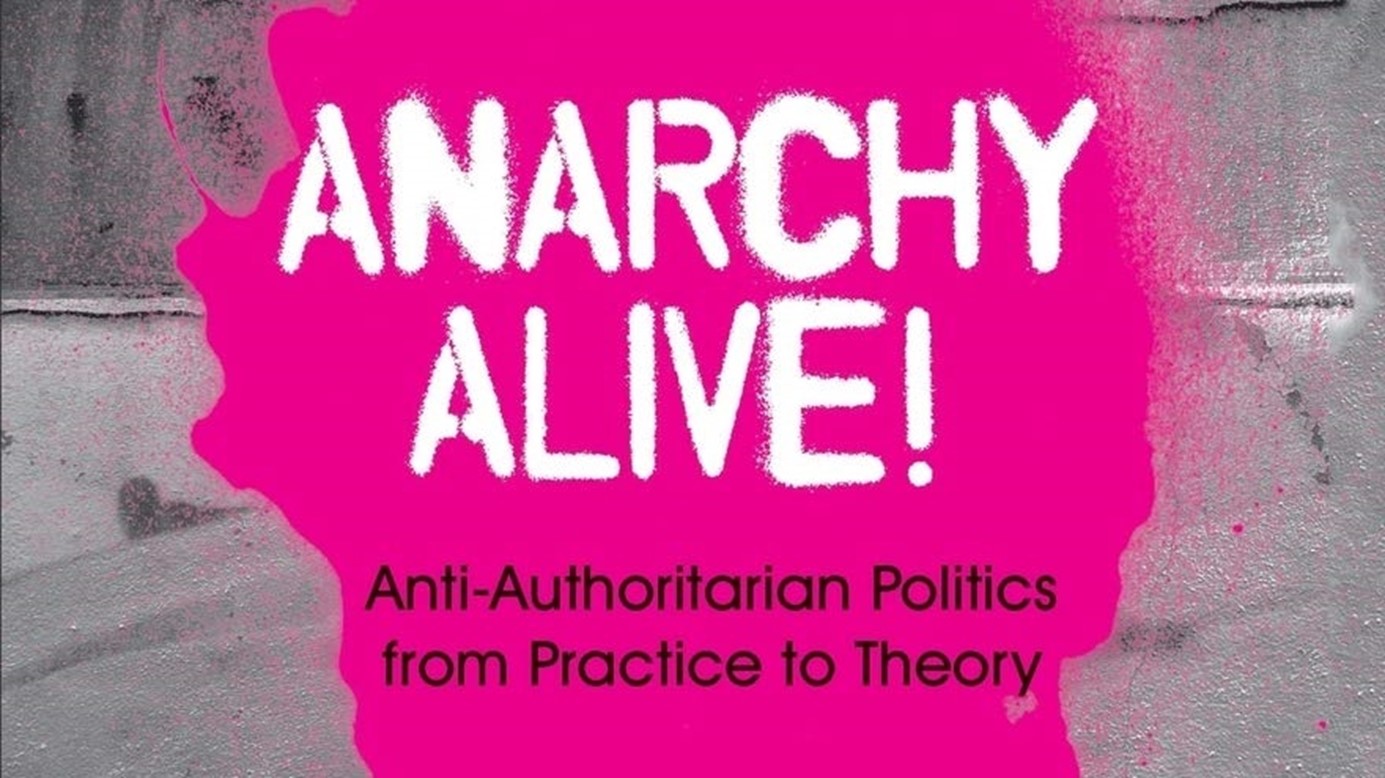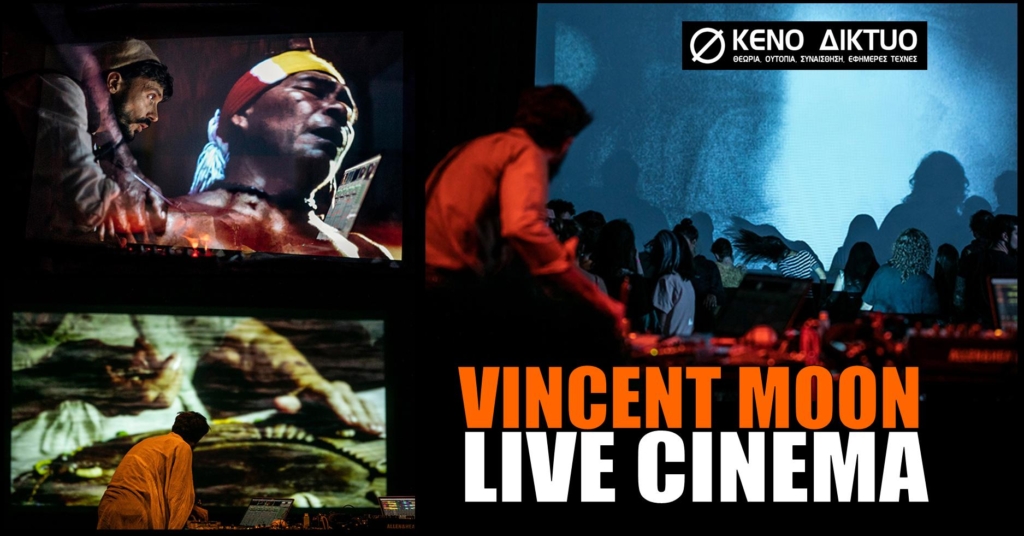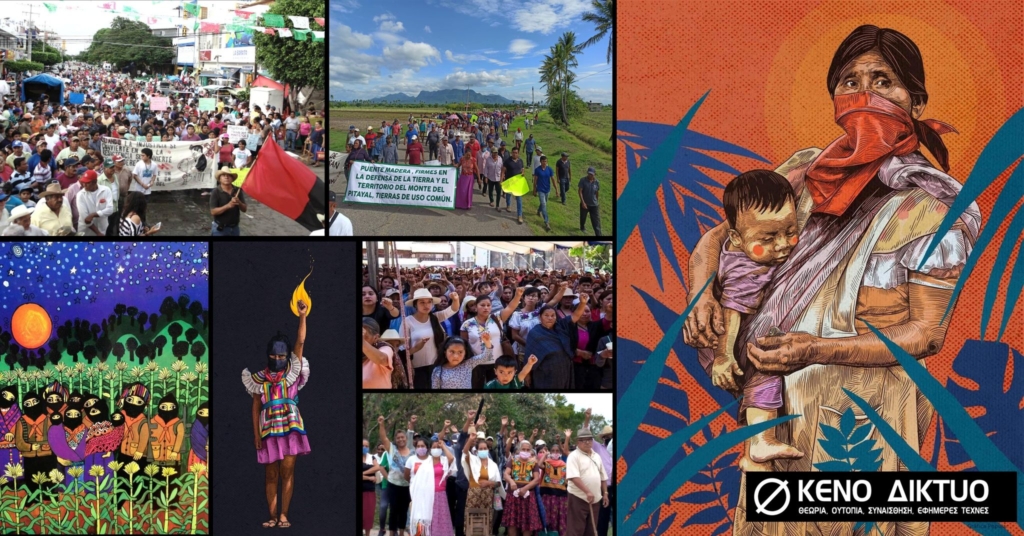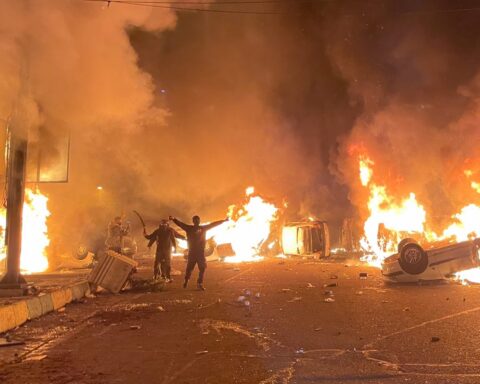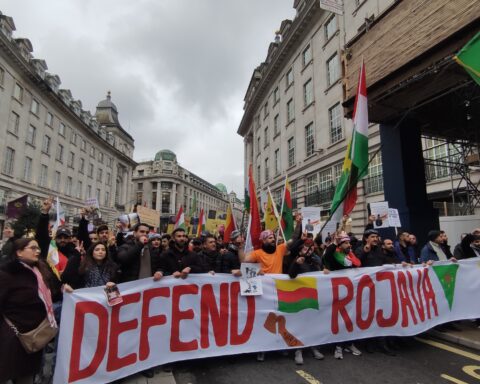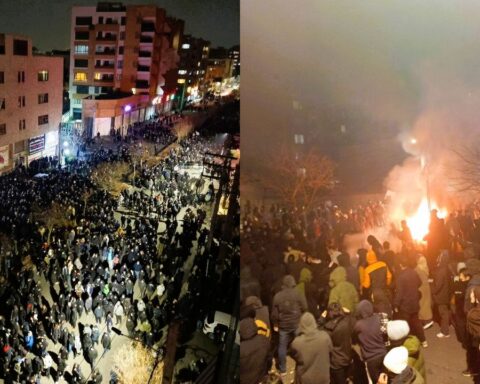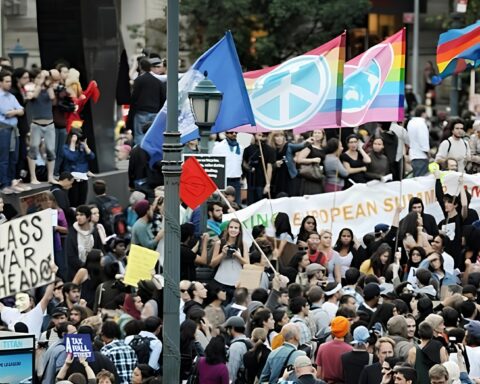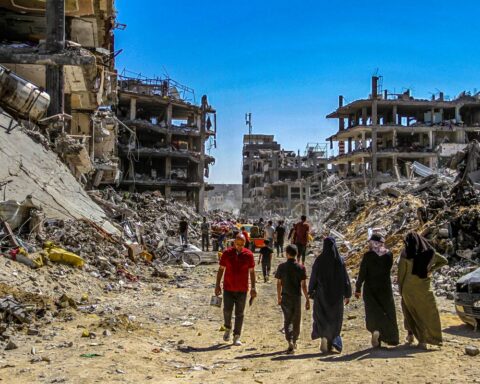On the occasion of the publication of the book “Anarchy Alive” in Greek by Panopticon publications, Uri Gordon talks with Tasos Sagris, member of the Athenian anarchist community Void Network. The book is an interesting political wandering in the contemporary anarchist theoretical debates, as also the movement’s practices during the beginning of the 21st century, in the period up to 2007 which took the form of global coordination, demonstrations and riots against the globalization of capitalism. Drawing on experience from his activism, the author examines the rise of anarchist movements in the Western world, surveying key theoretical debates within them on the issues of power, violence, nationalism and technology.
Uri Gordon, in his conversation with the director, poet and anarchist activist Tasos Sagris, offers us an excellent example of the mutual feeding of practice and theory, confronting the social changes of the years since the first edition of his book until today and the directions that the anarchist struggle for freedom and social justice is taking nowadays.
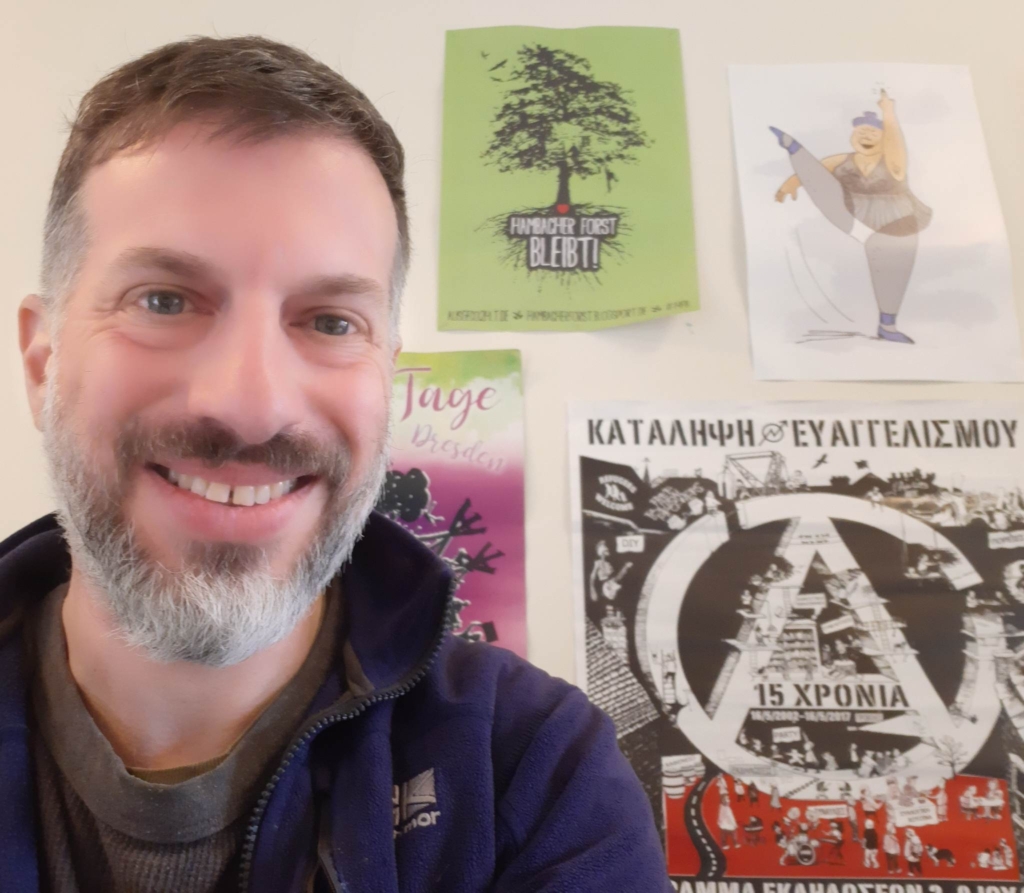
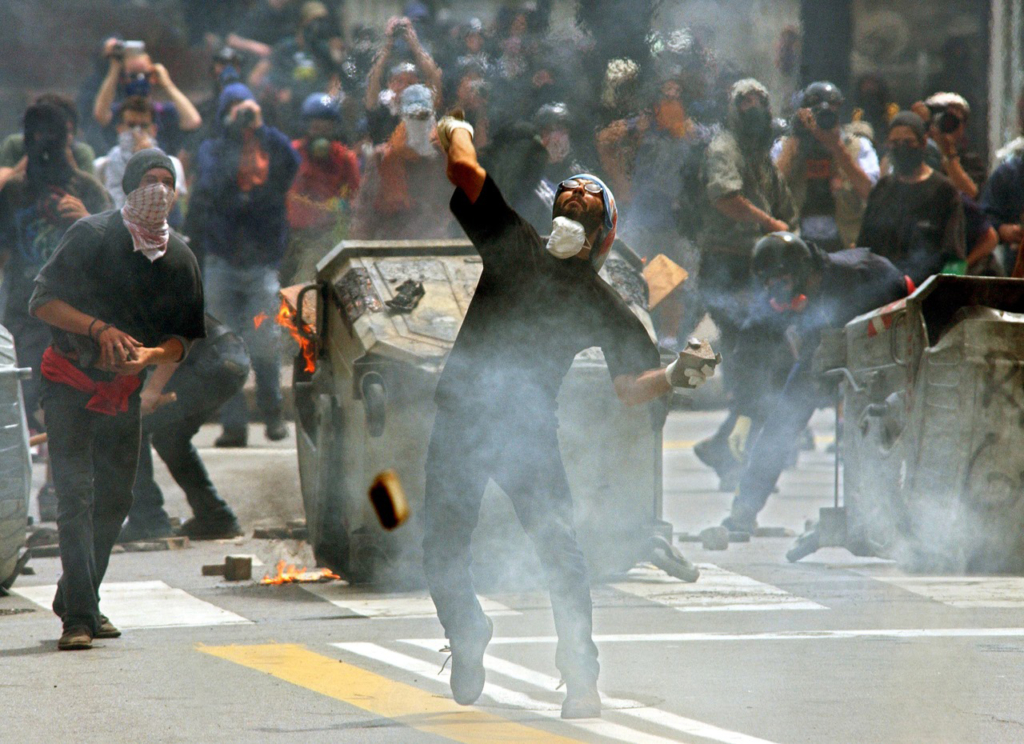
T.S.: I remember coming back to Athens in a boat from the Genoa riots against the G8 in July 2001, with hundreds of other Greek anarchists. We were sharing this enthusiastic collective idea that our critique of the totalitarianism of Soviet Union (and any other totalitarianism), as well as our attack on capitalism (and all systems of exploitation), is the great hope of humanity for liberation and equality. Fifteen years after the publication of your book and 22 years after Genoa do you share the same enthusiasm?
U.G.: But Genoa was already a bit of a nightmare. Then 9/11 flipped the script and the reaction has lasted twenty years. The repression that was starting to openly mount in Genoa showed just how loudly social movements, especially from the global South, were able to challenge the globalized power structures that were emerging after the Cold War.
Our counter-spectacle successfully drew out the State’s want on violence, but then the global war machine got into full gear and the vertical antagonism against social inequality was overtaken by the worst varieties of religious and ethno-national antagonism. It took a global permanent war to stop our momentum, how’s that for enthusiasm? Now, this war has combined with the rolling “permacrisis”: climate, humanitarian, debt, health. But what if we let go of our denial and confront the big public secret of our times: the decay of extractive civilization, the phase-down of the biosphere, and possibly the extinction of humanity have already begun. Is nuclear confrontation just around the corner, or just a matter of time?
May Noam Chomsky live to 120, enthusiasm he wants.
You know what, let’s make an effort to find hope and enthusiasm. But first let’s just agree on a realistic scenario somewhere on the spectrum of breakdown and destruction. Imagine humanity has only centuries to survive, then tell me where you find hope. Too hard? Imagine humanity survives indefinitely, but in reduced habitable zones, with increasing reliance on life-support technology, and powerful states and social hierarchies survive in some form and to some extent – indefinitely. But in all this I keep thinking about pockets of resistance and free zones, in the interstices and on the margins, and about how transparency and solidarity among equals always surfaces in struggles for life, freedom and dignity. I’m always enthusiastic about nurturing social relations based on transparency and solidarity among equals in whatever circumstances we find ourselves.
But as far as hope is concerned, I think we’re much safer pinning it on survival — of the biosphere, of humanity, of anarchy in social relations. I guess the survival of hope itself is the only thing to ultimately hope for. It’s a hope that sustains itself recursively, a hope that only ends with extinction. Everything else is a bonus.
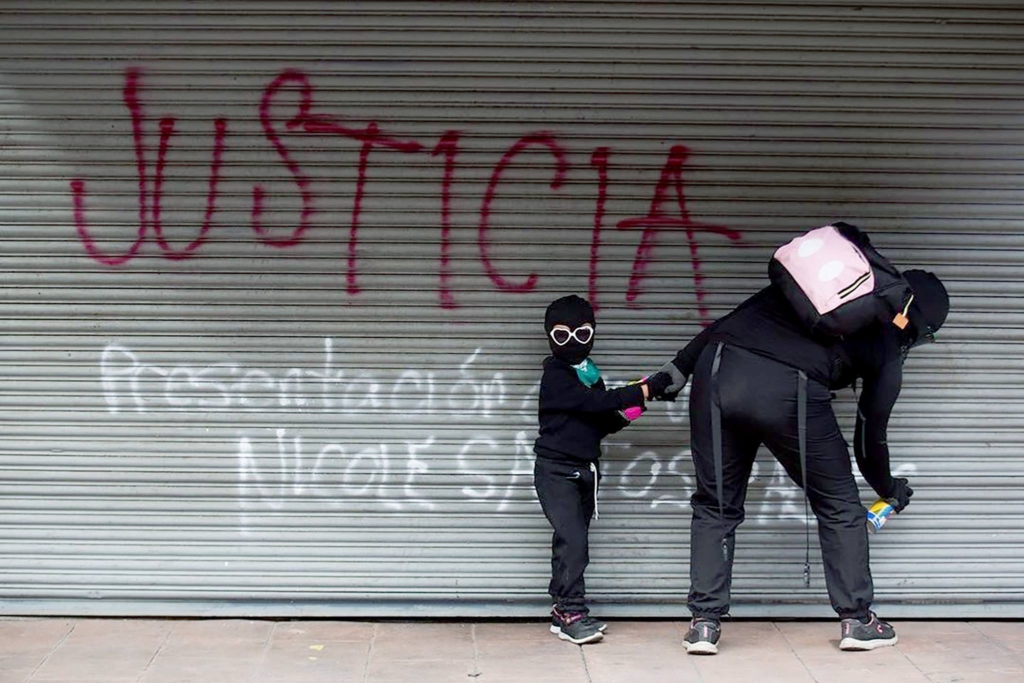
T.S.: Your book covers the period from 2000 to 2007, just before the wave of the global economic “crises”. Do you believe the anarchist movement expanded and deepened its analysis and practices from those times? Observing the enthusiastic and optimistic perspective of your book do you believe that anarchist movement is in better or in worst condition today, and why?
U.G.: Optimism he says. Read Ecclesiastes. My book now appearing in Greek hardly touches on our prospects or any “strategic” considerations if such a thing is even possible. The main chapters are conceptual debates; I was just tired of so many discussions where people were talking past each-other about power, violence, technology and nationalism. Those discussions needed a bit of philosophical dialysis, if you want to call it that. I don’t think it really helped, but at least I got my own head around it. Later on I wrote a piece called “Dark Tidings” that looks more directly at the prospects of collapse, and I guess that’s part of what sent me back to Fredy Perlman in the work I put out just now.
I think the point of anarchist practice is to manifest anarchy in opposition to all systems of domination, whatever specific struggle or project is at stake. But that’s just the right thing to do regardless of success or failure, however you might want to set up that evaluation. I don’t want to reify anything like an “anarchist movement”, but given what I’ve said above the conditions are obviously pretty dire.
That doesn’t mean we shouldn’t keep promoting both anarchy and anarchist ideas; but I think instead of post-scarcity anarchism we need a good dose of “post-apocalyptic anarchism”, or survival anarchism, or call it what you want. If anarchists are going to seriously look into the future, then we need to get past the denial, negotiation, anger, and grieving stages with the loss of old dreams and expectations, and move forward into acceptance and action. But that’s all the more reason to be brave together, self-aware and transparent about our choices.
Our biggest achievement – along with many other bottom-up social movements that don’t identify as anarchist – is that we have completely delegitimated neoliberalism. All the system now has to offer is a managed decline into a low-carbon economy with ongoing concentrations of wealth and power. This is why there is such a surge in national and male chauvinism nowadays: promises for general prosperity sound entirely hollow and only draw attention to the actual prospects for human civilization and survival. It’s also why we’re seeing a surge of reactionary politics across the board, the reassertion of executive absolutism; this is the natural step now that illusions of representative government and the rule of law have been stretched well past the point of believability. Again, if we want something to be proud of it’s that social struggles against domination have successfully pushed hypercapitalist extractivism and cis-hetero-patriarchy to removing all masks. We now know that the gross privilege of the powerful will be defended to the point of extinction. And maybe we’ve just tipped the scales for survival.
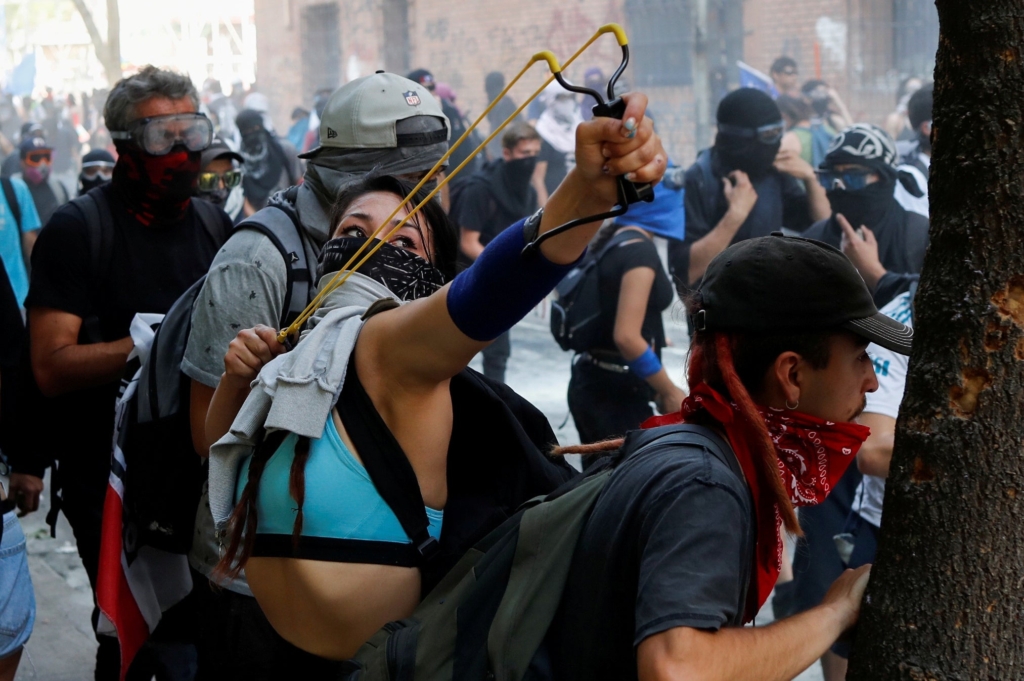
T.S.: The title of your book is “Anarchy Alive!” and a chapter is titled: Homeland- Anarchy in Palestine and Israel. I find very interesting this chapter because somehow it includes strategic propositions for the end of state wars in a way that social justice will arise victorious. As a member of the “Anarchists against the Wall” collective in Israel you help us focus on Anarchist movements across the borders, especially in war zones. After war in Palestine, Iraq, Afghanistan, Syria, Sudan, Ukraine and many other parts of the world, what the anarchist ideas can offer to help us end the militarization of societies and the state wars- in short, can Anarchy keep us alive?
Of course a stateless, classless society means no militarism and no wars, but in the next generations we’re probably going to see more of that rather than less. National and male chauvinism are resurgent at the moment, and armed conflict as well. So maybe it’s about how we’re helping to change narratives about religious and ethno-national conflict back into narratives about social conflict. This will be particularly important in the likely event of nuclear confrontation.
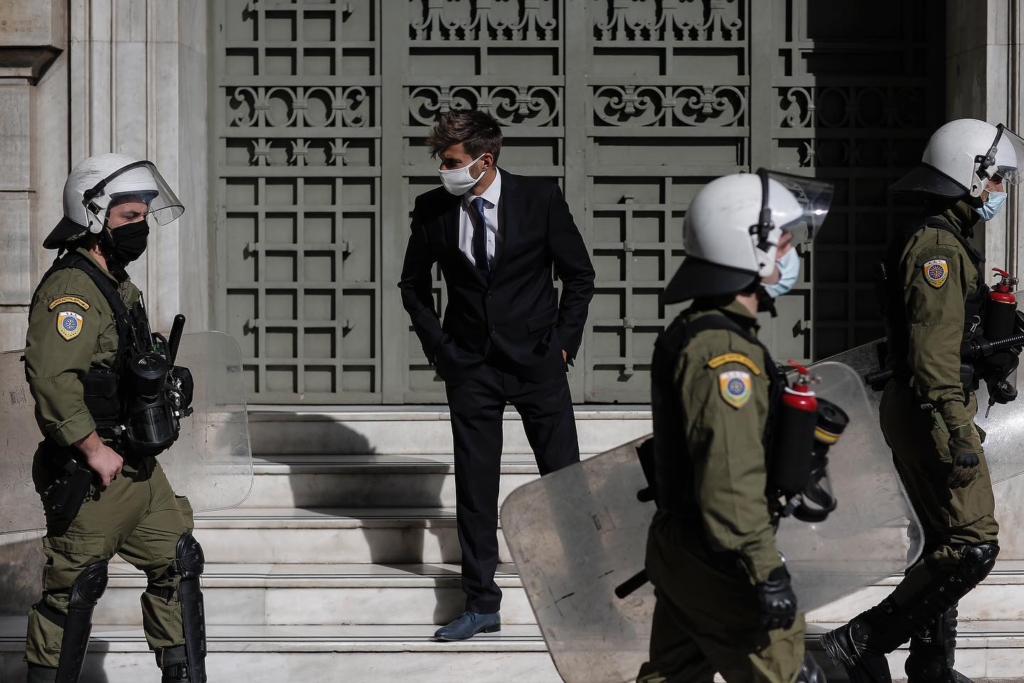
T.S.: In the early 2000 the movements were debating on the “violence- or-non violence” as a question of political morality. This is, I think the main reason that the debate covers a whole chapter in your book. We see no signs of any kind of “non violent” negotiations of the elites with the big masses of the poor and impoverished middle class. Maybe we run towards global civil war?
U.G.: At the moment nonviolent protest is also being made illegal, so I’m not sure this will remain a relevant debate. Having no faith in reform is only a precondition to discussing the ethics of violence. Right now we are in a global reaction, with fascism and extinction at its nadir. We are seeing increasing repression and authoritarianism, but the other side of the coin is that the narrative of progress and prosperity is losing its credibility for all but the richest.
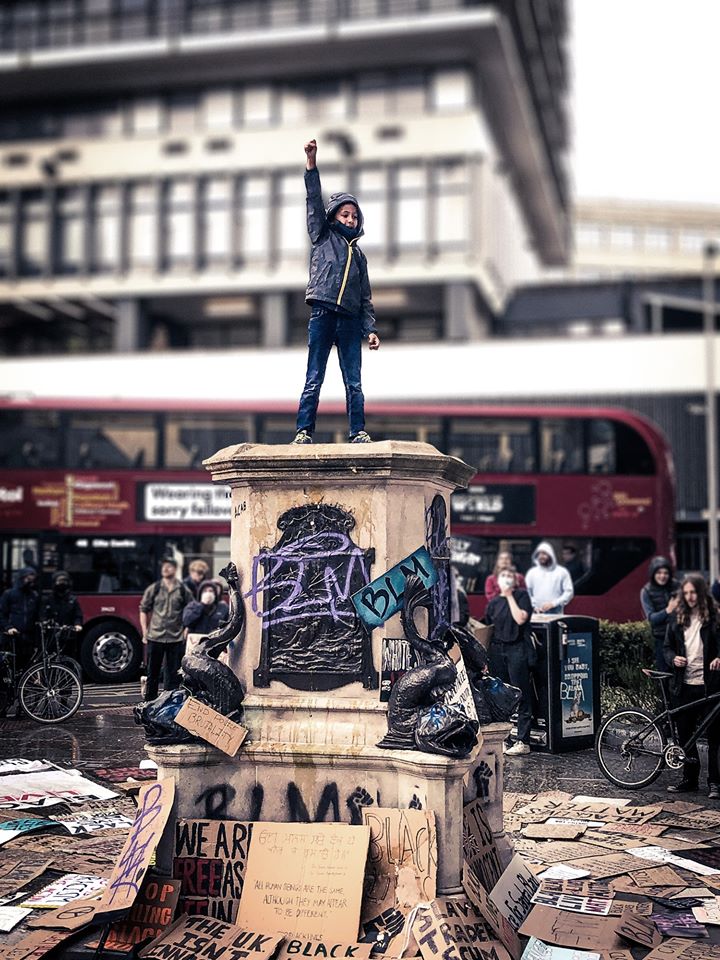
T.S.: Strikes become illegal, human rights are redesigned, ecological catastrophe fastens, media and politicians are corrupted, representative democracy represents only the billionaires- what is the future of anarchism and what we can call anarchy in an era of tremendous social, economic and political inequality?
U.G.: So like I said let’s take a worse-case scenario (not worst, worse) and build up from that. We’ve been doing a lot to delegitimate the system and increase its reliance on violence and deceit; I think the practices of grassroots organization and mutual aid that we have always promoted will become more and more necessary as the world becomes more hostile to survival. Anarchy always emerges when people interact transparently as mutually-assumed equals, and systems of domination will never eradicate it for as long as humanity survives. Anarchism is an ideology of survival. Always was. The rest is up to your imagination. I’ll take this opportunity to recommend recent writing by Rhiannon Firth, Alexander Dunlap, Andrew Robinson, Matt York, and the late David Graeber.
You can READ ALSO
Robotopias: mapping Utopian perspectives on new industrial technology- by Rhiannon Firth and Andrew Robinson
Disaster Anarchy- Mutual Aid and Radical Action by Rhiannon Firth
Anarchists Against the Wall- Direct Action and Solidarity with the Palestinian Popular Struggle– Uri Gordon and Ohal Grietzer
Leviathan’s Body: Recovering Fredy Perlman’s anarchist social theory- Uri Gordon
